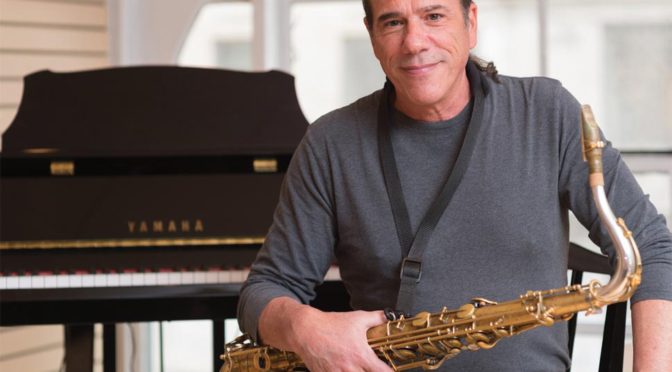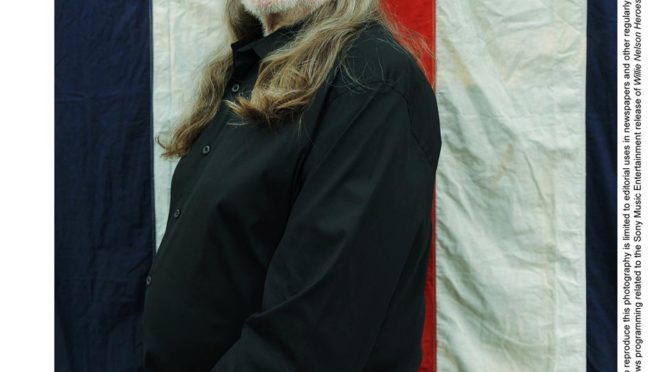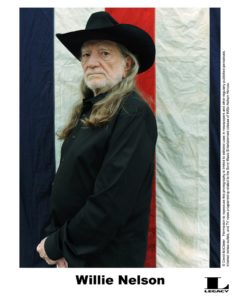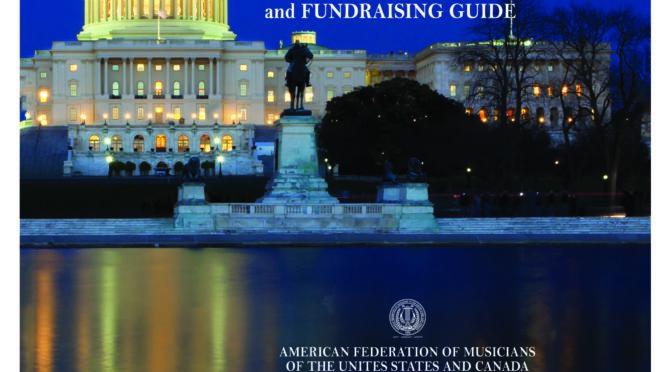
Tag Archives: AFM


Members Object to Having Their Songs Politicized
When Neil Young of Local 47 (Los Angeles, CA) rejected Donald Trump’s use of his song for political purposes he was in good company. Rollingstone published a list of 34 artists who objected to the use of their tunes in political campaigns, among them were Bruce Springsteen of Local 399 (Asbury Park, NJ) and 47 regarding Ronald Regan’s use of “Born in the USA”; Dave Grohl of Local 47 over John McCain’s use of “My Hero”; Nancy Wilson of Local 76-493 (Seattle, WA) over Sarah Palin’s use of “Barracuda”; Eddie Van Halen over John McCain’s use of “Right Now”; John Mellencamp of Local 11-637 (Louisville, KY) over John McCain, George Bush, and Ronald Regan’s uses of “Our Country,” “Pink Houses,” “ROCK in the USA,” and “Pink Houses”; Joe Walsh of Local 4 (Cleveland, OH) over Congressman Joe Walsh’s use of “Walk Away”; Neil Peart of Local 298 (Niagara Region, ON) over Rand Paul’s use of “The Spirit of Radio” and “Tom Sawyer”; and David Byrne 802 (New York City) over Charlie Crist’s use of “Road to Nowhere.”

Nelson to Be Honored with Gershwin Prize
 Librarian of Congress James Billington announced that Local 433 (Austin, TX) Willie Nelson will be the next recipient of the Library of Congress Gershwin Prize for Popular music. The Gershwin prize honors a living music artist’s lifetime achievement in promoting song to enhance cultural understanding; entertaining and informing audiences; and inspiring new generations. He will be recognized for the honor in Washington, DC, in November.
Librarian of Congress James Billington announced that Local 433 (Austin, TX) Willie Nelson will be the next recipient of the Library of Congress Gershwin Prize for Popular music. The Gershwin prize honors a living music artist’s lifetime achievement in promoting song to enhance cultural understanding; entertaining and informing audiences; and inspiring new generations. He will be recognized for the honor in Washington, DC, in November.
“Willie Nelson is a musical explorer, redrawing the boundaries of country music throughout his career,” says Billington. “A master communicator, the sincerity and universally appealing message of his lyrics place him in a category of his own, while still remaining grounded in his country-music roots. His achievements as a songwriter and performer are legendary. Like America itself, he has absorbed and assimilated diverse stylistic influences into his stories and songs. He has helped make country music one of the most universally beloved forms of American artistic expression.”
Nelson has written numerous country-music standards, and has made 200-plus recordings that cross many genres. He is also a noted author, actor, and activist, who continues to thrive in a career that has spanned six decades.
Previous winners of the Gershwin Prize for Popular music include Local 802 (New York City) members Paul Simon and Carole King, Local 5 (Detroit, MI) member Stevie Wonder; and the songwriting duo Burt Bacharach of Local 47 (Los Angeles, CA) and the late Hal David.
Rosanne Cash Selected as Artist-in-Residence
Local 802 (New York City) member Rosanne Cash has been selected as the 2015 Artist-in-Residence at the Country Music Hall of Fame and Museum. As artist-in-residence, the Grammy-winning singer songwriter will perform three intimate concerts at the Hall of Fame September 2, 3, and 24—each with a different theme and guest line-up. “Rosanne Cash, this year’s artist-in-residence, comes to us at the top of her game. On her latest release, The River and the Thread, Rosanne explores her deep roots in the South and delivers some of her best work in an already illustrious career,” says museum CEO Kyle Young.
To read more about Cash’s latest album and her career click here.
AFM Sues Sony Over Numerous Contract Violations
The AFM has filed a lawsuit against Sony Music Entertainment, Inc. for collective bargaining agreement violations regarding the Sound Recording Labor Agreement (SRLA). The SRLA covers wages, benefits, and other conditions of employment for professional musicians in the creation of sound recordings. Among multiple violations named in the suit was recording work on the 2009 docomentary Michael Jackson’s This Is It, made just before Jackson’s death. Sony called the musicians for a recording session, which it claimed was for a “record” (defined as CDs, records, tapes, music videos, or concert DVDs), when the actual purpose was the recording of a film score. The SRLA Sony signed only covered recording for records, and prohibited recording for film scores. While Sony could have signed a letter that would allow them to use the AFM Motion Picture Agreement for this recording session, the company refused. As a result musicians are unable to collect residuals on the film.
This discrepancy may seem small to the public, but it makes a huge difference in terms of fair compensation to musicians trying to earn a living, explains AFM President Ray Hair. “Musicians have joined together to create industry standards and it is simply unacceptable for greedy corporations to knowingly violate those standards and deny residuals,” he says.
The suit also charges Sony with failure to make “new use” payments to musicians as required under the SRLA for the incorporation of covered sound recordings into new sound recordings and electronic media. Among other projects named in the lawsuit were: Pitbull’s 2012 version of Michael Jackson’s “Bad”; use of the Earth, Wind & Fire song “Boogie Woogie Wonderland” in the 2012 movie The Untouchables; use of the 17 songs from Tony Bennett: Duets II in a 2012 program broadcast on National Public Television; and use of recorded live televised performances of Whitney Houston accompanied by instrumental musicians (covered by the AFM Television Videotape Agreement) to produce a CD and CD/DVD set called Whitney Houston Live: Her Greatest Performances.
“We did not want to go to court,” says Hair, “but Sony repeatedly refused to do the right thing and pay the musicians fairly.

TEMPO: One of the AFM’s Most Effective Advocacy Tools
The Taskforce for Employment of Musicians Promotional Organization (TEMPO) was established in 1961 when the AFM was steeped in legislative battles over copyright, the Cabaret Tax, and royalty distribution, which followed prior legislative battles over the LEA Act, the National Labor Relations Act, and a host of other federal legislative initiatives. The need to help AFM-friendly federal legislators stay in Washington, DC, to continue the fight on behalf of professional musicians remains essential to our existence. TEMPO is one of the most recognized and highly respected bipartisan labor affiliated political action committees in Washington, DC. Because of the relevant successes that the AFM Office of Government Relations and the fund have accomplished, these important internal institutions have served to provide high quality, added value to your AFM membership.
SOCAN Music Awards
The AFM wishes to congratulate all of its members who were honored at the SOCAN Music Awards. Among those receiving SOCAN Awards were:
- Randy Bachman of Local 145 (Vancouver, BC), Lifetime Achievement Award
- Dallas Green of Local 298 (Niagara Region, ON), National Achievement Award
- Brett Kissel of Local 390 (Edmonton, AB), Country Music Award for “3-2-1”
- Tim Hicks of Local 298, Country Music Award for “Got a Feeling” (Roots 3 Music Inc.)
- Robert Carli of Local 149 (Toronto, ON), Domestic TV Music Award – Fiction, for Murdoch Mysteries
- Ian LeFeuvre, Ari Posner, and Chris Tiat, all members of Local 149, Domestic TV Music Award – Animated, for Johnny Test
- Jeff Danna of Local 47 (Los Angeles, CA), Achievement in Feature Film Music Award for The Expatriate
- Andrew Lockington of Local 149, Achievement in Feature Film Music Award for Percy Jackson: Sea of Monsters
- Keith Power of Local 47 (Los Angeles, CA), International TV Series Music Award for Hawaii Five-O
- The Strumbellas of Local 149, Folk/Roots Music Award
- Shawn Mendes of Local 149, 2015 SOCAN Breakout Award
- Kirk MacDonald, of Local 149, Hagood Hardy Award
Recording Musicians Associations Represents AFM’s Recording Musicians, a Year in Review
 by Marc Sazer, President Recording Musicians Association (RMA) and Member of Local 47 (Los Angeles, CA)
by Marc Sazer, President Recording Musicians Association (RMA) and Member of Local 47 (Los Angeles, CA)
Elayne Jones is a luminary musical pioneer. A premier timpanist, she broke down barriers throughout her stellar career: as first woman and first African-American to play timpani in major orchestras. She began with the New York City Opera in 1949, and her career extended to the San Francisco Symphony and San Francisco Opera. Today, in her 80s, Jones counts on her union pension for security in her retirement.
The recently ratified agreement between our union and the film and TV studios will now make Jones’ pension more secure. Recording musicians helped craft a proposal to contribute a portion of the residuals from the Film Musicians Secondary Markets Fund (FMSMF) to the AFM pension fund as a whole. Once the trustees have worked out procedures, this contribution will not be earmarked for individual benefits. Instead, the new money will help secure the fund for all of us, from young musicians just starting out to retirees, like Jones.
The Recording Musicians Association (RMA) is proud to help ensure retirement security, and we work tirelessly with our union to maximize employment opportunities for musicians. Music in electronic media produces Midas-like wealth for those who own and monetize it, and should produce good industry standard employment for the musicians who create it.
Electronic media has been transformed by technology, tax credits, ever-changing styles, business developments, and cultural trends. But there are a few constants.
Our union musicians are the preeminent source of music recorded for all media. The International Federation of the Phonographic Industry (IFPI) tracks global record sales, physical and digital. Their research, online at the website: www.ifpi.org/best-sellers.php, shows that the top sellers throughout the world are produced by AFM members. Motion pictures are a global enterprise, blown around the globe on the winds of tax credits, yet year after year AFM musicians record the largest number of film scores for wide-release films.
Attachment to both the business model of our employers, and the trends and actions of our sister unions in the entertainment labor movement, are key to economic survival.
Companies naturally seek to make money more efficiently, and over time tend to make less product, exploiting our music in more markets and platforms. Fewer films are made and released, fewer records are released, fewer big investments are made in live TV shows. New media distribution of content is the future, and union musicians are empowered stakeholders. In records, film, TV, and commercials, our contracts ensure that we are attached to the new media and future media success of our employers.
Following the lead of other entertainment industry unions makes sense. Musician participation in the bounties of new media is in large part due to the strength, vision, and sacrifice of our brother and sister union members who write, act, direct, film, transport, and otherwise contribute to our worldwide entertainment culture. From the actor’s strike in 1960 that established residuals for the film industry to the 2007-2008 strike by writers that laid the groundwork for new media coverage for all, from the International Alliance of Theatrical Stage Employees (IATSE) activists who successfully organized the TV show Survivor, to the activist musicians who demanded union session wages, residuals, pension, and health care for the orchestra of Mad Men, we stand on many strong shoulders.
We can strengthen our benefits, such as the pension fund, and we can pursue industry standard employment. We can make headway with legislation at the federal, state, provincial, and local levels. We can help the next generation, and the next, working to ensure that equal pay for equal work includes generations, as well as gender. All of this is possible only insofar as we as musicians talk amongst ourselves, work out our disagreements, find our common interests, and ultimately, stand together.
Disruptive Technologies — Our Time of Transformation
 by Bruce Fife, AFM International Vice President and President of Local 99 (Portland, OR)
by Bruce Fife, AFM International Vice President and President of Local 99 (Portland, OR)
The old phrase, “may you live in interesting times” is often purported to be a blessing, when in fact, it is a curse, mistakenly attributed to be of ancient Chinese origins, though its origins are Western, 20th century. Whether it’s a blessing or a curse is of little consequence.
What is of consequence is the “times” we live in are moving forward at breakneck speed, with little consideration to the effect of disruptive technologies. I don’t know whether it’s possible to slow things down enough to consider the impact of implementation, but I believe it’s important to try.
The music biz was the canary in the coal mine. We were the first to really be impacted by the disruption caused by the technological revolution. Starting with Napster, it’s pretty much been one disruption after another. As you look at other industries, journalism was right on our tails, then retail, film, and TV, etc. All impacted to varying degrees by new technology.
Now the newest twist is the “sharing economy” of Uber, Airbnb, and Lyft. This is disruptive, because once again, the technology allows companies to play by a different set of rules. Everyone is placed at the intersection of worker rights, consumer rights, consumer preferences, and big business. On one hand, for example, there is no obligation to have liability insurance nor to pay license fees or other types of taxes that cab companies and/or hotels are historically required to pay. In other words, they’re profiting by not playing the “game” the way years of experience have brought it together through knowledge that protects consumers and workers and with infrastructure that allows businesses to flourish.
I do get it—the convenience of tapping your phone and having a car show up quickly, or the adventure of staying in someone’s home with a view. But, if you were the cab driver who has had to follow a strict set of rules (laws or mandated regulations), which can now be ignored by Uber, or you live on a street where your neighbor rents out his home and now there are late night parties and strangers “moving in” who have little or no respect for your neighborhood, you might not think it’s such a good idea.
There is one other key consequence. The revenue generated is not going to the worker on the ground, but once again, appears to be flowing to the top. Uber has reportedly become a $50 billion company in just six years and the drivers are not getting an equitable share of that revenue. In fact, depending on which report you read, after adjusting for the overhead of their vehicles, they are making no more than current cabbies. That could change. Uber drivers have now won their first round in Federal Court in San Francisco relating to their misclassification as independent contractors. They are fighting to be classified as employees so that they are be able to receive gratuities (Uber informs customers that gratuities are included in the price) and recover maintenance costs. They are taking a stand.
The thing that bothers me most about all of this is that no one seems to be looking at the long-term consequences. Are we again, by not considering the long term, going to destroy more industries, at the cost of many more jobs for hard-working people? Are we going to destroy, as well, the infrastructure that has made this short-term growth possible, but that may not survive the disruption? I’m not against progress, but I believe we’re better served if we don’t blow up an industry, but rather, keep the best of it, while shedding the anachronistic parts of it.
The place I’m headed with this is wages. All of this disruption hits wages of workers harder than any other part of the industry. The response to these challenges seems to always be to lower our wages. That is certainly the easiest answer, but once you go down that road, it’s difficult to come back from it. Yes, it’s hard to see, and to stand up for the long game, but if we don’t, we just hand everything over to whomever is the current “man.” (Remember that little company, Google, and its slogan, “do no evil”? Now, it’s clearly “the man.”)
How did we get to the place where club owners are doing musicians a favor by letting them play in their clubs? How is it ok to give US tax credits to companies that then take the work overseas? How does it make sense that one musician is supposed to cover the clarinet, bass clarinet, flute, oboe, and English horn parts in the pit, just so they don’t have to hire more musicians? How bad does it have to be before people decide, okay, that’s enough, now it’s time to stand up and fight for what’s right.
Yes, I’m ranting, but I get tired of watching the “power” of the employer not challenged by the power of our numbers. It can’t be just your local or national officers who are ready to stand up for what’s right. You have to be part of that team. We do live in interesting times and I’d like to see us come through them better than we came into them. So far, it’s not looking so good.
We must focus our creative attention and power on those external forces around us that take advantage of our lack of engagement. We need to have the common sense to value our skills and talent, our work, and the music we create and offer. Yes, it’s scary, it’s challenging, but when we don’t stand up to power, they can take it all away from us. It’s human nature to do what they’re doing, but it should also be our nature to fight this “curse” of interesting times, and make sure we own and benefit from what we create.
Apple Makes Swift Change in Plan
 Last week, indie labels and artists put pressure on Apple to compensate artists during the three-month trial period for its new streaming service. Musicians feared, in particular, that they would miss out on opportunities to get financial return from new music launched during Apple Music’s free introductory period, beginning June 30.
Last week, indie labels and artists put pressure on Apple to compensate artists during the three-month trial period for its new streaming service. Musicians feared, in particular, that they would miss out on opportunities to get financial return from new music launched during Apple Music’s free introductory period, beginning June 30.
This weekend, Local 257 (Nashville, TN) member Taylor Swift posted an open letter on her Tumblr page saying she would withhold her latest album, 1989, from the service because of this situation. The letter read, in part: “I find it to be shocking, disappointing, and completely unlike this historically progressive and generous company … This is not about me. Thankfully, I am on my fifth album and can support myself, my band, crew, and entire management team, by playing live shows. This is about the new artist or band that has just released their first single and will not be paid for its success. This is about the young songwriter who just got his or her first cut and thought that the royalties from that would get them out of debt … We know how astronomically successful Apple has been and we know that this incredible company has the money to pay artists, writers, and producers for the three-month trial period.”
According to Billboard, Apple Senior Vice President Eddy Cue reached out to Swift, letting her know he had heard her concerns, as well as the concerns of indie musicians across the country. Apple also announced that it will now be paying royalties to artists and record labels during the introductory first three months.

